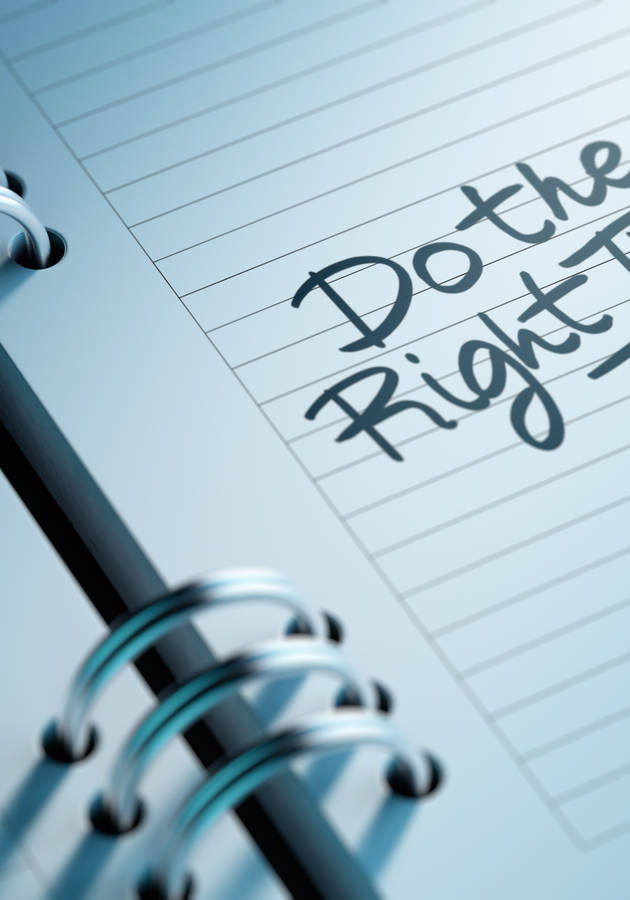Unsurprisingly, most of the people you know are probably going to tell you that the only reason you should detect your weaknesses is that somebody is going to use them if they discover them first.After all, it’s a jungle out there! When things get competitive, or you are either the intelligent one and gain an advantage or the weak one who loses everything.
Fortunately, Brené Brown, a research professor at the University of Houston, is very much unlike most of the people you know. Book after book, tries to convince the world that it is good to be vulnerable and courageous to be weak.
“Rising Strong” is not an exception – as our summary will prove to you shortly.
The three R’s of Rising Strong: reckoning, rumble, revolution
If you know anything about Brené Brown, you probably know that she is great at storytelling and even better at coining mnemonics.
Do you remember the three C’s sequence from “The Gifts of Imperfection”? Of course, you do! That’s why you fire away almost instantly: “the three C’s stand for courage, compassion, and connection.” As expected, Brown has another mnemonic for you in her new book, and this one is all about the letter R. The R’s are: reckoning, rumble, revolution.
That’s the subtitle of the book for a reason, it’s what “Rising Strong” is all about. Whether you want to come to terms with your grief, failures, or setbacks, these are the three steps you need to remember and put into practice. So, let's first describe these steps in short, and then explore each of them in detail.
Reckoning is Brown’s way of telling you that you need to tell your story to understand it. No matter what they teach you, life is not about denying how you feel, because others are not making it easier for anyone by shielding themselves.
It’s about looking deep and expressing your emotions in comprehensible language. This is not only a process of sharing with others, but it’s also necessary to be able to understand it.
Do you know how people who write down things suddenly experience a eureka moment?
There’s a reason for that, and it’s implanted in the way your brain works. Your mind usually likes to protect you from traumas, e.g., by misshaping the memories, by telling you to adapt and look forward. However, this means slowly losing a part of yourself. So, face it!
That’s what the rumble is. The process doesn’t end with you telling the story. That’s merely the beginning. The tricky part is retelling to yourself the painful story, visiting it repeatedly. Challenging it, facing it, reality-checking it, and taking the blame.
Only perpetual self-examination and introspection can help you rise above the circumstances. Because grief is bad when repressed, and it is good when dug through, turned upside-down. It leads to discoveries and peace.
“Wisdom arises from suffering,” believed the ancient Greeks. That’s the revolution. It’s the moment you transform your beliefs, ideas, and stop looking at the world through the looking glass.
It happens when there are no more feelings of “it isn’t fair” and “I deserved better”. Moreover, no longer will the world be divided into two groups of people: the worthy and the “sewer rats.” Your brain misleads you and tricks you into doing this partition because it wants to make you more selfish.
That’s an evolution for you right there. However, be brave enough to go against the grain. Face your vulnerability, cry from time to time, help around, and you will be helped.
The reckoning and permission slips
Even though you might not have noticed it, the free world is not as free when it comes to dealing with people’s emotions. On the contrary, we live in a not so open-minded society in which talking about our deepest, sincerest, and most profound feelings is a taboo.
No matter what everyone else is trying to convince you, modern society doesn’t care that much about how you feel. Think of it this way: you are not allowed to skip work simply because your boyfriend or girlfriend left you, are you? No matter how bad you feel, you are still required to show up and make that all-important Excel table.
Brown says that the problem with this should be quite evident to anyone who cares, burying your emotions with rational distractions does nobody a favor.
How do some people do it? Instead of unloading emotions, they find a way to reckon with them. You can do that too, and you need nothing more but a pen and a piece of paper, since it all starts with permitting yourself to feel.
Just take a piece of paper, and write and give yourself permission to feel something you want to feel out loud, no matter how strange that thing may seem to the people around you.
“I wrote my first permission slip on a Post-it note the morning I met Oprah Winfrey for the first time and taped an episode of Super Soul Sunday,” writes Brown. “It said, ‘Permission to be excited, have fun, and be goofy.’”
Now Brown’s jeans pockets are often “stuffed with permission slips,” and almost all of her team meetings start with each of the team’s members writing and sharing a permission slip of their own.
“We’re not going to recognize emotion if we don’t feel like we have permission to feel emotion,” concludes Brown. Once you permit yourself to engage with emotion, the only thing left to complete the process of reckoning is paying attention, taking a deep breath and becoming mindful of what you’re feeling.
Next step: becoming a little curious about your feelings, the bridge between the reckoning and the rumble.
The Rumble (and SFDs)
“The reckoning is how we walk into our story,” writes Brown. “The rumble is where we own it.” The goal of the rumble is to “get honest about the stories we’re making up about our struggles, to revisit, challenge, and reality-check these narratives as we dig into topics such as boundaries, shame, blame, resentment, heartbreak, generosity, and forgiveness.”
Whether you like it or not, you are a storytelling species. Yuval Noah Harari, in “Sapiens,” says that the main difference between humans and other developed animals – the reason why we live in such large societies – is the fact that people can believe in the veracity of their stories.
However, the problem with stories is that they are just that, stories, and they are, by definition, made up. They are also quite necessary; according to neurologist Robert Burton, we are biologically evolved in such a manner that the body rewards us when it recognizes the familiar beginning-middle-end pattern of the story.
Therefore, every time we are faced with a problem or are overcome by negative feelings, such as pain, anger, and frustration, our brain compels us to structure these feelings in a story. The only thing that matters is a story explaining something, whether it is true or not.
Say that you are hurt or betrayed by your partner. The pain you’re feeling is unbearable, and your brain suggests that you invent a story which will give this betrayal some meaning: everything has meaning when it is part of a story.
Some may start that story with “My partner is a jerk who didn’t see me for what I was,” but most people will start it with “I’m unlovable.”
Why? Because “I’m not enough” is one of the go-to narratives when we’re hurt As Brown says, “the equivalent of my comfy jeans.”
Once you start being curious about your feelings, these stories are bound to come to the surface, and you must face them.
The first questions you ask in the rumble are often the simplest:
- “What more do I need to learn and understand about the situation?”
- “What more do I need to learn and understand about the other people in the story?”
- Then, you move on to the more difficult questions, the ones that take courage and practice to answer:
- “What more do I need to learn and understand about myself?”
- “What’s underneath my response?”
- “What am I really feeling?”
You need a pen and a paper to answer these questions. Because, as Brown says, the most effective way to foster awareness for your stories is by writing them down.
You don’t need to be Shakespeare or Tolstoy to do this. You just need to be brave and willing to rise strong. And be prepared to write sh*tty first drafts, or SFDs for short, (to borrow a phrase from Anne Lamott) or “stormy first drafts” (if you’re teaching the rising strong process to kids).
The core of Brown’s SFD has just six sentences with a few notes:
- The story I’m making up.
- My emotions.
- My body.
- My thinking.
- My beliefs.
- My actions.
After completing your SFD, you’ll see beneath the conspirations and confabulations of your story, and will be able to write yourself a new one. That’s how the revolution begins.
The Revolution (and the 5 R’s)
“We are the authors of our lives. We write our own daring endings,” writes Brown in the epigraph to the final chapter of “Rising Strong.”
Do that: turn the reckoning-rumble process into practice and be prepared to go through a personal revolution, “deep, tumultuous, groundbreaking, no-turning-back transformation.” Go beyond yourself, and before you know it, you might start changing the world itself.
Brown’s philosophy is deeply embedded within the 5 R’s, the guiding principles of The Daring Way, the organization she leads.
In their entirety:
• Respect for self, for others, for the story, for the process.
• Rumble on ideas, on strategies, on decisions, on creativity, on falls, on conflicts, on misunderstandings, on disappointments, on hurt feelings, on failures.
• Rally together to own our decisions, own our successes, own our falls, own and integrate our key learnings into our culture and strategies, and practice gratitude.
• Recover with family, friends, rest, and play.• Reach out to each other and the community with empathy, compassion, and love.
Can you do that? It is not only for you, but it is also for the sake of all humanity.
Final Notes
It takes some courage to not be touched by Brené Brown’s words. Because even when she gets a little bit loose as in “Rising Strong” and moves away from somewhat more rigorous scientific work into the world of the folksy and the spiritual, she still finds a way to inspire and motivate.
Even though she tends to be repetitive, at least it is with ideas we are comfortable hearing about over and over again.
Moreover, everyone has to admit that she is excellent at sharing them in a humble, unpretentious, relaxed manner, which abounds with quotes from both scientists and popular people alike, whether real such as Lamott and Oprah, or fictional such as Yoda.
We won’t even mention her stories, although we dare you to read them and forget them soon.
12min Tip
Question the stories you tell yourself — just as you question those other people tell you. Beneath all the conspirations and confabulations, there is a human heart, beating. And it is always filled with love, butterflies and dreams.





























